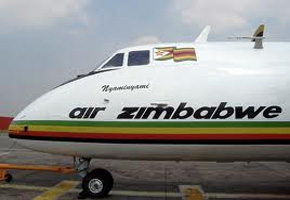Editorial Comment: AirZim must be wary of bad investors

THE national flag carrier, Air Zimbabwe, is facing operational challenges which grounded it at one point.
Now it is back in the skies but the challenges are stifling the parastatal’s clean operations. It is still burdened by a huge debt, about $298 million, labour anxiety over salaries and apparent management deficiencies. It needs about $260 million for recapitalisation but the airline has no capacity to raise the money alone so the government is working with it to look for a partner to inject not only fresh capital but also ideas. Fifteen airlines, as Transport and Infrastructural Development Minister, Obert Mpofu said last week and as we report elsewhere in this edition, have indicated their willingness to partner with Air Zimbabwe.
The response to the call for a partner is strong. It is an indication of the potential Air Zimbabwe and this destination called Zimbabwe has. If it did not have any, the flag carrier would have failed to raise the interest of any airline.
“Cabinet has agreed that we look for partners for Air Zimbabwe and its balance sheet, which is in the negative, will be assumed by the government. Currently, we’ve got 15 airlines that want to partner us and we’ll update you once cabinet discussions on the matter are finalised,” Minister Mpofu said.
He added: “We’ve Air Zimbabwe and a lot of people think the airline is doing well as we’ve allowed more airlines to fly into the country. They’re coming in because we’ve allowed competition, which has also helped in the reduction of fares and encouraged people to use air travel. So we’re comfortable but we’re inviting applications to run an airline because the risk isn’t for the minister but yours (investor).”
But that potential, we argue, can only be useful once the internal challenges encumbering Air Zimbabwe’s competitiveness, among them old planes, management deficiencies and the huge debt, are addressed. Any new investor would obviously want to put their money after satisfying themselves that they would not inherit the debt and would influence senior management deployments. It is good that the minister said the government would take over the debt.
There is no need for Air Zimbabwe to struggle at a time when the country is attracting more airlines, all of which are very reputable. Airlines that were already flying into Zimbabwe are, in fact, increasing their frequencies. This means that there is business and the new partner would make money as well.
The potential extends to the airline’s existing profitable routes to places like London, Beijing and so on. In addition, the parastatal is a competitive brand in its own right. Equally important is the fact that Air Zimbabwe has a safe record, a major plus factor in an industry where fatal accidents are prevalent. Even as the airline is struggling for spare parts, is flying comparatively older aircraft and sometimes served by unpaid or poorly paid staff, it has never crashed. This is an exemplary record that any potential suitor would want to be associated with. By saying older air aircraft we have to point out that we know that age is not always a factor in determining the condition and relative safety of a plane. There are other factors like the hours it has flown, how the aeroplane is maintained and the competence of the cockpit crew.
With good management and free from the albatross of the debt, Air Zimbabwe can return to viability.
Air Zimbabwe is our pride. It is probably our biggest ambassador as it flies with that iconic livery to Beijing, London, Johannesburg, Kuala Lumpur and other international destinations.
We look forward to a well considered agreement with the best of the 15 interested airlines for the airline to return to business in a more predictable way.
But as the government and the parastatal look for a new partner, we caution that their desperation must not lead them to sign up a bad investor. We expect an airline that is more reputable than Air Zimbabwe, and has the money to ensure that it invests in new aircraft and maintenance of existing ones, pay competitive salaries and possesses capacity to open up new and profitable routes. The government, we suppose, wants a partner who is also willing to understand Air Zimbabwe’s operational culture.
We don’t want emergency decisions that can see the airline engage a small, resource poor partner who will not add any value to our national pride.











Comments